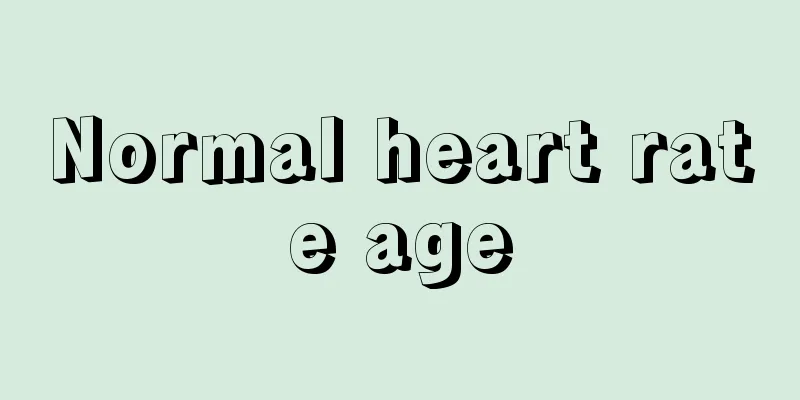Normal heart rate age

|
We all know that people at different stages of their physical fitness are different, so the functions of various organs in the body are also different. Just like the human heart, as we age, the heart organ will slowly fail, and the heartbeat will become slower and slower. Younger people may have a faster heartbeat, while people in their fifties and sixties will have a slower heart rate. So what are the normal heart rates for different ages? There are significant individual differences in the heart rate of normal adults at rest. The average is around 75 times/minute (between 60-100 times/minute). Heart rate can vary depending on age, gender, and other physiological conditions. The heart rate of a newborn is very high, reaching over 130 beats per minute. Among adults, women generally have a slightly faster heart rate than men. For the same person, the heart rate slows down when the person is at rest or sleeping, and speeds up when the person is exercising or emotionally excited. Under the influence of certain drugs or neurohumoral factors, the heart rate can speed up or slow down. People who regularly engage in physical labor and exercise usually have a slower heart rate. The heart rate of a healthy adult is 60 to 100 beats per minute. Most people beat 60 to 80 times per minute, and women beat slightly faster. Children under 3 years old often have a heart rate of over 100 times per minute; the elderly tend to be slower. A heart rate of more than 100 beats per minute in an adult (generally not more than 160 beats/minute) or more than 150 beats/minute in an infant is called sinus tachycardia. It is common in normal people after exercise, excitement, agitation, smoking, drinking and strong tea. It can also be seen in fever, shock, anemia, hyperthyroidism, heart failure and the use of atropine, epinephrine, ephedrine, etc. If the heart rate is between 160 and 220 beats per minute, it is often called paroxysmal tachycardia. A heart rate lower than 60 beats/minute (generally above 40 beats/minute) is called sinus bradycardia. It can be seen in people who engage in heavy physical labor for a long time and in athletes; pathologically, it can be seen in hypothyroidism, increased intracranial pressure, obstructive jaundice, and overdose or poisoning of digitalis, quinidine, or propranolol. If the heart rate is less than 40 beats/min, atrioventricular block should be considered. A heart rate that is too fast, exceeding 160 beats/minute, or less than 40 beats/minute, is mostly seen in patients with heart disease. Patients often experience palpitations, chest tightness, and discomfort in the precordial area. A detailed examination should be conducted early so that treatment can be targeted at the cause. |
<<: Exercise lowers heart rate
>>: Normal heart rate for 37 years old
Recommend
What are the symptoms of being nervous?
In life, we often encounter some things that make...
What can I eat after gastroscopy? It turns out that I can eat these
Although gastroscopy is a common examination in d...
How long does it take for primary liver cancer to form
The time it takes for primary liver cancer to dev...
How can lung cancer patients take good care of their diet? Lung cancer patients should pay attention to these matters in their diet
Lung cancer patients often make mistakes in the p...
Range hood cleaning time
Most people probably don’t know how often they sh...
Will a deviated nasal septum cause my nose to become crooked?
In daily life, deviated nasal septum is a relativ...
Is it good to take natural vitamin C?
The human body needs to supplement enough vitamin...
The correct way to remove acne with sulfur
In life, there are many ways to remove acne. You ...
What harm does ammonia do to the human body
Ammonia is a colorless gas with a strong pungent ...
What can’t you eat after eye surgery
We all know that the prerequisites for surgery ar...
What should I use to whiten my teeth?
Smile is the most attractive expression in the wo...
What are the symptoms of bone cancer
In fact, bone cancer can be seen in many places i...
How to care after colon tumor surgery?
The early symptoms of colon cancer are not obviou...
What is the structure of the radiocarpal joint?
The human wrist joint is a very complex connectio...
What are the dangers of brain cancer
Brain cancer is very harmful to our body. We all ...









